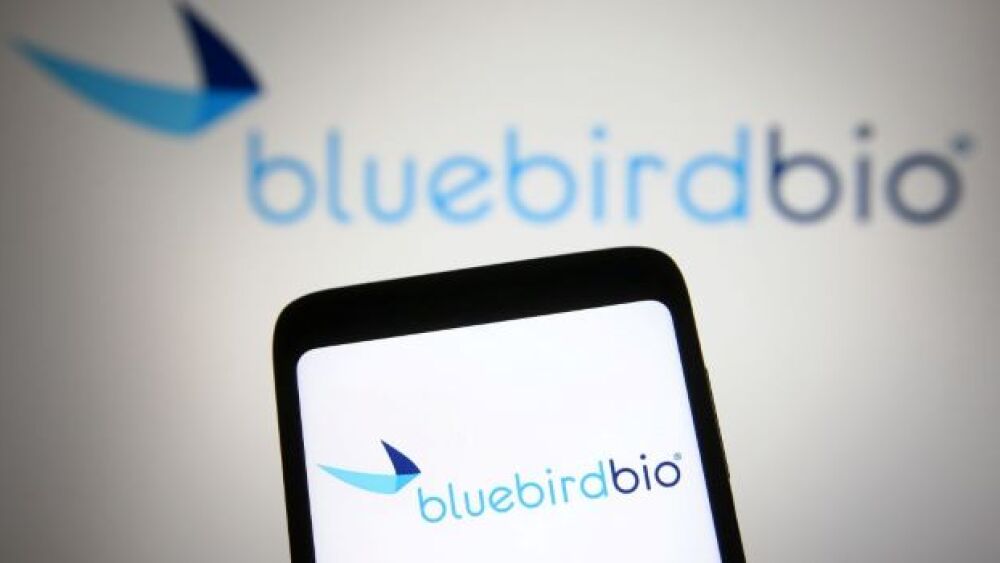Under the deal disclosed Thursday in an SEC filing, bluebird bio doubled the number of covered U.S. patients for its sickle cell gene therapy to a cumulative total of around 200 million people.
Pictured: bluebird bio logo on wall/device, courtesy of Pavlo Gonchar/SOPA Images/LightRocket via Getty Images
A month after winning the FDA’s approval for its sickle cell disease gene therapy Lyfgenia (lovotibeglogene autotemcel), bluebird bio has secured its second outcomes-based coverage deal, the biotech disclosed Thursday in an SEC filing.
The agreement pushes the cumulative total of covered U.S. patients for Lyfgenia to approximately 200 million people, the company noted in its filing.
Bluebird previously signed a similar outcomes-based agreement in December 2023, a week after Lyfgenia’s FDA approval. The company did not name the payer but said that it represents approximately 100 million covered patients in the U.S.
At the time, bluebird also revealed in an SEC filing that it was in advanced talks with other large commercial payers and with more than 15 Medicaid agencies, representing some 80% of sickle cell disease (SCD) patients in the U.S.
Bluebird said it will provide more details regarding the commercial launch of Lyfgenia at next week’s 42nd annual J.P. Morgan Healthcare Conference.
Lyfgenia is a gene therapy that delivers a functional copy of the β-globin gene directly into the blood stem cells, allowing patients to produce their own anti-sickling hemoglobin and reducing the overall proportion of sickled hemoglobin.
The FDA approved Lyfgenia on Dec. 8, 2023, authorizing its use to treat SCD patients 12 years and older who have a history of vaso-occlusive events. Despite the regulatory win, however, bluebird’s stock tanked nearly 35% that same day.
Driving the market’s skepticism of Lyfgenia is its hefty wholesale acquisition price of $3.1 million. By comparison, Vertex Pharmaceuticals and CRISPR Therapeutics’ Casgevy (exagamglogene autotemcel)—a competing SCD gene therapy approved by the FDA on the same day as Lyfgenia—will cost $2.2 million. Lyfgenia also carries a boxed warning, flagging cases of hematologic malignancies in treated patients, while Casgevy does not.
Seeking to bolster its cash position, bluebird announced weeks after Lyfgenia’s approval that it was raising $250 million through two funding opportunities: a $150 million underwritten public offering and a $100 million accounts receivable factoring agreement.
As of the end of September 2023, bluebird had around $227 million in cash, cash equivalents, marketable securities and restricted cash, which is enough to support the company into the second quarter of this year, according to its third-quarter 2023 financial report.
Tristan Manalac is an independent science writer based in Metro Manila, Philippines. He can be reached at tristan@tristanmanalac.com or tristan.manalac@biospace.com.






